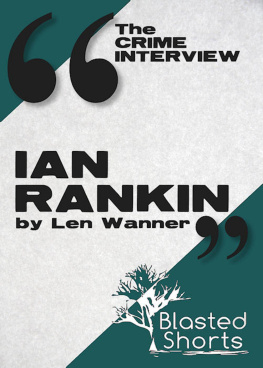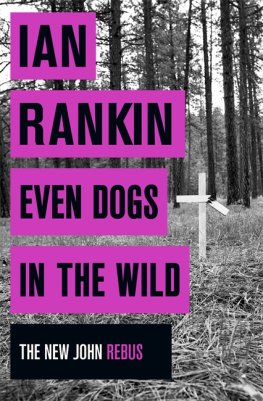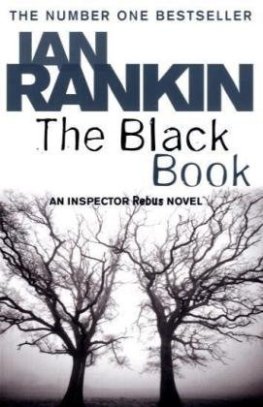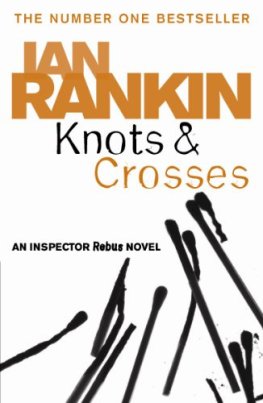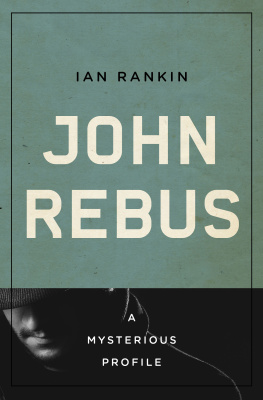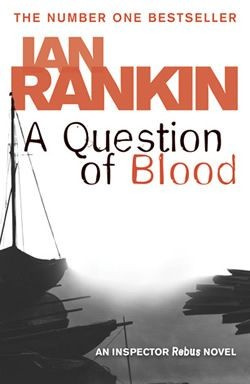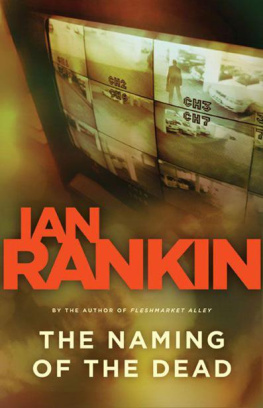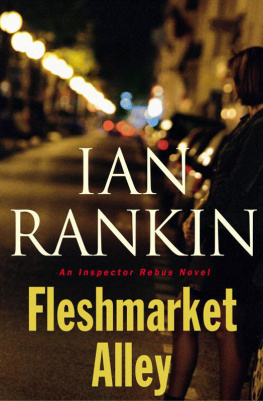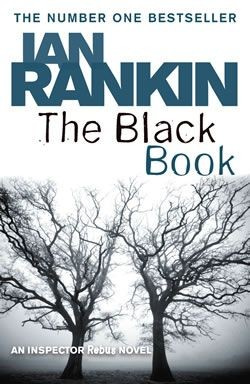The Crime Interview: Ian Rankin
by
Len Wanner
Published by Blasted Heath, 2012
copyright Len Wanner, 2011, 2012
This interview was first published by Two Ravens Press in 2011 in Dead Sharp: Scottish Crime Writers On Country And Craft
All rights reserved. No part of this publication may be reproduced or transmitted in any form or by any means without permission of the author.
Len Wanner has asserted his right under the Copyright, Designs and Patents Act 1988 to be identified as the author of this work.
Cover design by Blasted Heath
Visit Len Wanner at:
www.blastedheath.com
Version 3-2-4
Ian Rankin
I an Rankin was born in the Kingdom of Fife in 1960. Today, he is known around the world as the 'King of Tartan Noir'. Yet when a man holds a publishing record of 31 bestsellers 18 of which have established John Rebus as Scotland's most celebrated Detective Inspector and when every other promising crime writer in the country has been anointed 'the next Ian Rankin', chances are a certain impatience arises at the mere mention of his name. After all, he is well-known without being known well. Sure, like any writer of his rank, he is hard to know, for his public image is at best a friendly caricature. At worst it distracts from his writing. But even before he earned both critical and commercial success, he was confident to correct his readers' preconceived notions of his literary heritage. Mr Rankin did not want the Scottish crown of crime fiction.
Long before the genre allowed him to become the United Kingdom's bestselling male writer, he had no time for crime fiction, be it as an avid reader or as an ambitious writer. His earliest experiments were dedicated to comics, his teens to poems, his undergraduate years to short stories, and his postgraduate years to Scottish novels. Yet in 1987 his debut, Knots and Crosses , was published, not in the tradition of Robert Louis Stevenson, but in the trappings of crime fiction. Much to Mr Rankin's relief, his short-list of professional honours has since proved Allan Massie right; he could afford to wait for the professors of literature. The Rebus series has been televised by ITV, Mr Rankin has received four honorary doctorates from the Universities of Edinburgh, St Andrews, Abertay, and Hull, and he has been made an Officer of the Order of the British Empire for services to literature.
Mr Rankin's long-list further includes a Palle Rosenkrantz Prize, a Grand Prix du Roman Noir, a Deutscher Krimipreis, a Chandler-Fulbright Award, and a Hawthornden Fellowship. He has received two CWA Daggers for his short stories along with the 1997 CWA Macallan Gold Dagger for Black and Blue . He has been short-listed for the MWA Edgar Award for best novel, and he has come back to take the 2004 award for Resurrection Men . He has received the 2005 CWA Cartier Diamond Dagger for his lifetime's contribution to the genre, and he has won the ITV3 Crime Thriller Award for Author of the Year 2008 for Exit Music . Yes, the record also includes his literary apprenticeship as a swineherd, taxman, grape-picker, alcohol researcher, hi-fi reviewer, college secretary, and punk musician, but there are more surprising rewards in moving these images aside a little to appreciate the man behind the name and fame.
When I followed Mr Rankin's invitation to his Edinburgh home, where he lives with his wife, his two sons, and his fictional yet infamous Big Ger Cafferty, the man I met moved back and forth between personality traits that the admirer from afar is unlikely to recognise as literary merits. At times he would answer with the sharp wit of the subversive mind that remains for ever distant; at others with the quiet sense of the artist's isolation that is not exclusive to his fiction. So, when I asked what a man does once he has set his country a literary monument, he told me he takes time out of his writing life to answer that very question. Then he answered every one of my follow-up questions about the elusive principles of man's behaviour in the social state and Mr Rankin's bestsellers in and beyond the Kingdom of Tartan Noir.
'T artan Noir' was that your idea?
Ha! 'Tartan Noir' is a term I'm confident I invented, but I gave it to James Ellroy. I met him at a crime fiction convention in Nottingham many years ago and I wanted to get him to sign a book for me. I was explaining to him that I was a crime writer as well and wrote about Edinburgh and the darker side of Scottish life. I said, "You could call it Tartan Noir." He laughed and signed the book to 'the King of Tartan Noir'. So then I pretended that he'd invented it. But in fact, I told him and then he wrote it down. Chris Brookmyre nicked it after that and started using it.
Didn't he call it chromatically impossible?
Yeah! Well, it is. It's an oxymoron. Tartan can't just be black otherwise it's not a tartan. Anyway, I've still got my James Ellroy book upstairs so I can prove he wrote that on the book. Or somebody wrote it on the book... I can't prove it was him.
Can you say what it means to you?
Tartan Noir there's no tradition of crime fiction in Scotland, but there is a great tradition of dark, psychological, Gothic horror stories. Specifically in '70s Glasgow, there was a move towards a realistic school of writing about working class life, writing about hard men, writing about hard lives, and writing about urban experience. So it was a move away from the 'kaleyard', which was this romanticised view of Scotland. I think crime fiction tapped into that very nicely, and because there was no tradition of crime fiction in Scotland it had a completely level playing field. Nobody had to be worried about writing in a certain tradition, and most of us weren't influenced by the English.
I'd better speak for myself and not for anybody else: I certainly wasn't influenced by the English crime novel, because I'd never read one. I'd never read any Agatha Christie, Margery Allingham, or Dorothy L. Sayers, but I'd read a lot of Muriel Spark, which is very dark, and I'd read William McIlvanney, James Kelman, Alasdair Gray, some John Buchan, and Alistair MacLean, a Scottish thriller writer, very famous in the '60s and '70s. But because there was no Agatha Christie figure, you didn't feel you were looking over your shoulder and had to write a certain kind of book.
So there's a huge catholicism to Scottish crime fiction. If you look at the stuff Alexander McCall Smith, Kate Atkinson, and Alanna Knight are writing, and if you then look at the really dark stuff people like Stuart MacBride are writing, it seems to me there's somebody writing in every sub-genre of crime fiction. When Paul Johnston started, he was writing crime novels set in a futuristic Edinburgh, so you have sci-fi crime fiction, historical crime fiction, you have comic crime fiction like Chris Brookmyre's, psychological crime fiction like Denise Mina's, cop novels like I'm writing... Other people are writing about private eyes, Allan Guthrie came along and seemed to enjoy writing about criminals rather than cops...
It just seemed there was room for all of that because we weren't expected to write any particular kind of crime novel. But the balance has swung towards noir, quite dark fiction and I think that comes out of the fact that the current generation of crime writers has grown up with things like Hannibal Lecter, slasher movies, and Hollywood serial killers who are exaggerated in their means and motives. We've grown up with American cop shows on the television. We find crime fiction a very good way of writing about urban experience and society, about current affairs and politics, so we're doing a lot more than just trying to tell a good story that will keep you engaged until the end of a train journey where you'll go: "Ach, that's who the killer was." I think quite a lot of writers in Scotland aren't that interested in the traditional notion of the English detective story, the structured novel that's full of red herrings and in which the detective gets all the possible suspects together in the penultimate chapter to explain who did it and who didn't do it.

